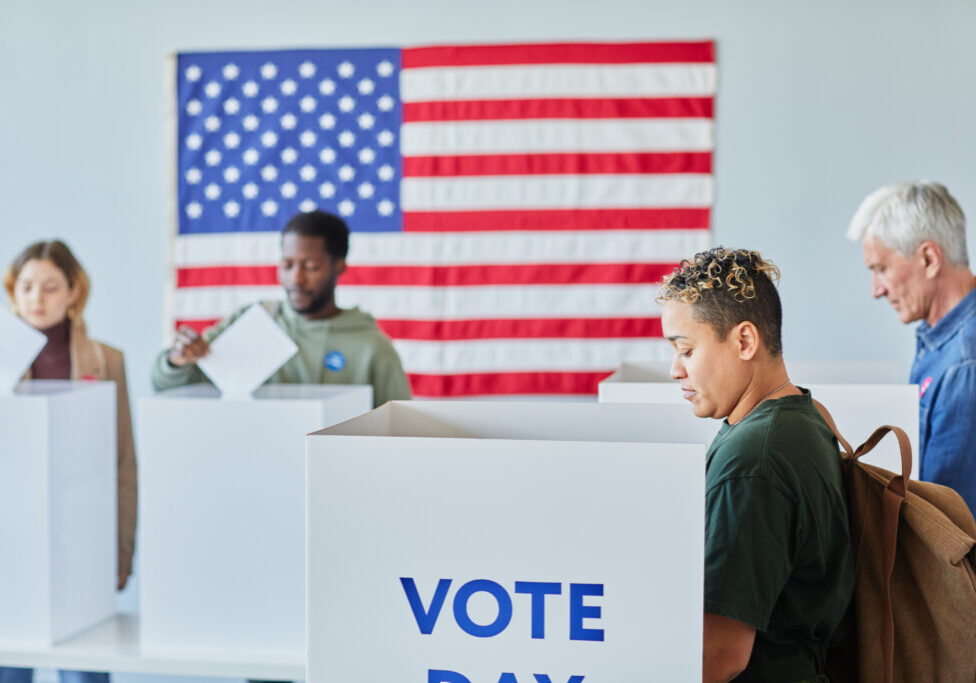Louisianans will head to the polls on Saturday to weigh in on four constitutional amendments. The Times-Picayune | Baton Rouge Advocate’s editorial board provides recommendations on the proposals, including why voters should reject Amendment 2 – a complex and rushed overhaul of the section of the state constitution that governs taxes and spending:
Not since the current constitution was adopted in 1974 have voters been asked to cast a single up-or-down vote on as many consequential provisions as are contained in Amendment 2, which would enshrine changes laid out in a 115-page bill adopted in a November special legislative session. … We don’t believe the rushed adoption of this far-reaching proposal allowed for the level of vetting that these extensive proposals warrant. While we applaud Gov. Jeff Landry’s administration and lawmakers for revisiting how best to fund government, we believe the conversation should not be short-circuited by hasty passage of this amendment. We therefore recommend a no vote.
Below are resources for all the proposed constitutional amendments:
- Invest in Louisiana webpage on Amendment 2
- Guest column: Flawed Amendment 2 would create bad policy outcomes
- No on 3 Campaign website
- No to Them ALL, Y’all website
- Voter Guide from the Power Coalition for Equity and Justice
The future of the Inflation Reduction Act in Louisiana
The 2022 Inflation Reduction Act (IRA) is the largest investment in climate change and renewable energy policy in U.S. history. But these investments face growing uncertainty as shifting political priorities threaten funding continuity and equitable distribution. A new issue brief from Invest in Louisiana’s climate policy fellow, Emanuel Lain, III, examines the focus and future of the IRA in Louisiana:
On January 20, 2025, President Donald Trump issued an executive order titled “Unleashing American Energy,” which mandates an immediate pause on the disbursement of funds appropriated through the Inflation Reduction Act. [7] … The order directs all federal agencies to review their processes, policies, and programs related to these funds to ensure alignment with the administration’s current priorities. This pause has significant implications for Louisiana’s ongoing and planned infrastructure projects slated to receive federal funding under the IRA
The consequences of corporate tax avoidance
A 2017 law signed by the first Trump administration cut the corporate tax rate from 35% to 21% and expanded ways for companies to further reduce their tax liability through various exemptions and loopholes. The current Trump White House is considering new tax breaks for corporations. But more than 6 in 10 Americans think rates on big businesses and corporations should be raised. Matthew Gardner of the Institute on Taxation and Economic Policy explains how the largest and most consistently profitable U.S. corporations have been able to skirt their tax liability since the 2017 law was enacted:
In the four years from 2013 through 2016, if the 296 corporations in this study paid an effective tax rate equal to the statutory rate of 35 percent, they would have paid $666.4 billion. Instead, they paid $418.4 billion, a full 37 percent less. That is another way of saying that these corporations sheltered 37 percent of their income from the corporate income tax during those years. Rather than reducing tax avoidance as any successful tax reform would be expected to do, the 2017 law increased it. The same calculation for the 2018-2021 period demonstrates that these companies sheltered 39 percent of their income from the corporate income tax.
Gardner explains why this level of tax avoidance exacerbates inequality:
The benefits of lower corporate taxes flow to shareholders of American corporations. Most of these shareholders are either very high-income (and disproportionately white) Americans or foreign investors. … Corporate tax breaks also increase racial inequality. Because white households own a disproportionate share of corporate stocks, they disproportionately benefit. White Americans receive 88 percent of the benefits that remain in the U.S. even though they make up only 67 percent of U.S. households. In contrast, Black and Hispanic households each receive just 1 percent of the benefits despite making up 12 percent and 9 percent of households respectively.
Social Security anxiety
The Trump administration’s overhaul of the Social Security Program is creating headaches for retirees and their survivors and the poor and disabled who receive earned benefits from the program. Cuts to funding and staff have led to website crashes and jammed phone lines. The effects of office downsizing and closures are already being felt locally in Houma. The Times-Picayune | Baton Rouge Advocate’s Will Sutton pushes back on the attacks on Social Security:
Until recently, people in the Houma region were able to visit the Suite 100 office at 178 Civic Center Blvd. with or without an appointment, just like in New Orleans. … Turns out there’s more to the story. SSA told WWL “This is a small hearings PRS, which is a room within another SSA office. As most of our hearings are held virtually, we no longer need as many in-person hearings sites.” I’m all for government assessments leading to greater efficiencies. But helping seniors get what they’re owed — without delay — is not a game. Trump, Musk and feds with a political antenna should realize it’s not worth upsetting seniors.
Number of the Day
$4.3 billion – Amount of federal funding Louisiana has received from the Inflation Reduction Act, which has flowed to the commercial and industrial sector, state and local governments, public transit agencies and schools. (Source: Invest in Louisiana)
